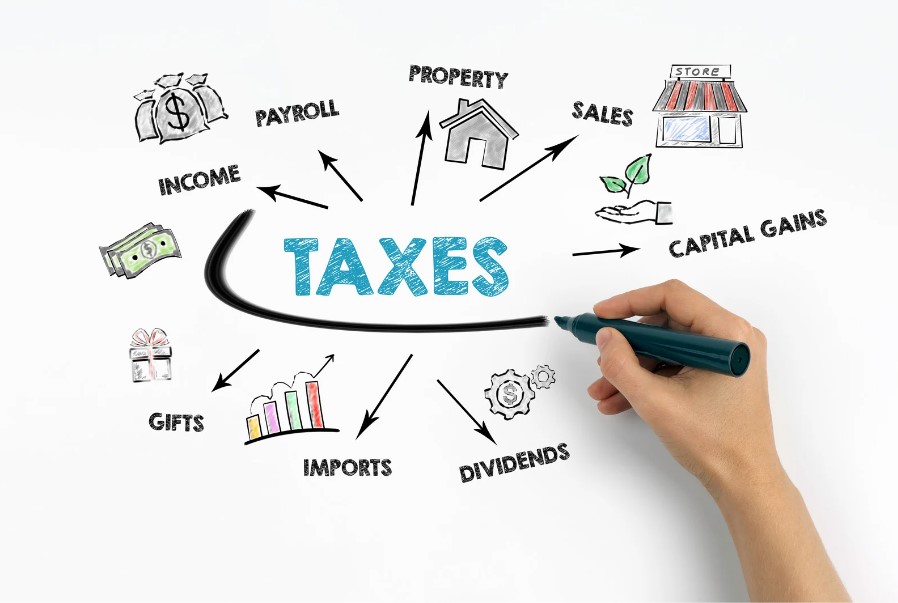Property tax incentives play a pivotal role in shaping real estate investments, offering financial benefits that can significantly enhance the appeal of various projects. In many regions, these incentives aim to stimulate development and investment by reducing the tax burden on property owners. Understanding the impact of tax on property is crucial for investors looking to maximize their returns and navigate the complexities of the real estate market. A prime example of how these incentives can influence investment decisions is seen in developments such as Faisal Town Phase 2, which has attracted numerous investors due to favorable tax policies.
1. Understanding Property Tax Incentives
Property tax incentives can take various forms, including exemptions, reductions, or credits offered by local governments to encourage real estate development. These incentives may lower the overall cost of property ownership, making investments more financially viable. For instance, a temporary reduction in property tax rates can provide immediate financial relief for developers and investors.
2. Stimulating Growth in Emerging Areas
Local governments often implement property tax incentives to promote development in underdeveloped or emerging areas. By alleviating some of the financial burdens associated with property taxes, these incentives encourage investment in regions that may otherwise struggle to attract interest. Faisal Town Phase 2 exemplifies this strategy, as it has become a focal point for growth and development due to its favorable tax environment.
3. Enhancing Cash Flow
Tax incentives can significantly improve cash flow for property owners by reducing their tax liabilities. This increased cash flow allows investors to reinvest profits into property improvements or additional investments, fostering a cycle of growth and profitability. Properties in Faisal Town Phase 2 benefit from such financial advantages, making them more appealing to potential buyers.
4. Long-Term Investment Stability
Investors often seek long-term stability in their portfolios, and property tax incentives contribute significantly to this goal. By providing predictable tax liabilities, these incentives allow investors to plan their finances more effectively. This stability is particularly beneficial for developments like Faisal Town Phase 2, where long-term growth potential is a key selling point.
5. Attracting Diverse Investments
Property tax incentives can attract a diverse range of investments, including residential, commercial, and mixed-use developments. By making it financially viable for various types of projects to move forward, local governments can foster economic growth and community development. The presence of diverse investments in Faisal Town Phase 2 enhances its appeal as a comprehensive living and business environment.
6. Supporting Affordable Housing Initiatives
In many cases, property tax incentives are used to support affordable housing initiatives. By reducing costs for developers who commit to building affordable units, local governments can help address housing shortages while providing investors with attractive opportunities. Faisal Town Phase 2 aims to offer a range of housing options that cater to different income levels, supported by favorable tax policies.
7. Increasing Property Values
When property tax incentives stimulate development in an area, they often lead to increased property values over time. As more properties are developed and demand rises, investors can benefit from appreciation in their real estate holdings. This trend is evident in projects like Faisal Town Phase 2, where strategic planning and investment have contributed to rising property values.
8. Simplifying the Investment Process
Property tax incentives can simplify the investment process by providing clear guidelines and expectations for developers and investors. Knowing what incentives are available allows investors to plan their projects more effectively and reduces uncertainty associated with regulatory hurdles.
Conclusion
Property tax incentives significantly impact real estate investments by encouraging development, enhancing cash flow, providing long-term stability, attracting diverse investments, supporting affordable housing initiatives, increasing property values, and simplifying the investment process. Developments such as Faisal Town Phase 2 illustrate how these incentives can create attractive opportunities for investors while fostering community growth. By understanding the effects of property tax, investors can make informed decisions that lead to successful real estate ventures.












